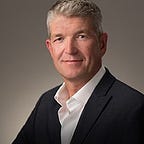Poked Eyes and Pirates: My introduction to the power of race
I was eight years old the first time I became aware of the power of race. I had grown up in a diverse working-class neighborhood in Norfolk, VA, and we had friends of all shades in our little house. I had heard my mom tell stories about her youth — stories about the hate white adults spit at her simply because she dared to befriend a Native American girl. I had watched my neo-Nazi neighbor chase my Black friends off his lawn and I noticed that he never said anything to me or my brothers when we needed to jump his fence to retrieve our football. None of that prepared me for what happened with my friend Brian.
Brian was a bubbly kid. He loved baseball, and he was always laughing. During the summer of 1979, Brian came to live with my family for a few weeks while his family “sorted some things out.” Brian and I were inseparable that summer. We were family!
One day Brian and I were recreating the wrestling moves we had seen on TV the night before when I accidentally poked him in the eye. His eye immediately turned bright red as it began to swell and close. My dad took him into the bathroom, rinsed his eye, and put a wet paper towel over it. Brian walked out of the bathroom looking a little worse for wear. His blue NY Mets hat sat crookedly on his head, and he held the wet paper towel over his right eye. “He looks like a pirate!” my mom shouted, hoping to lighten the mood and cheer Brian up.
“Except pirates are White and their eye patches are black.”
That’s what I said.
And Brian crumbled.
His head dropped and he shook as tears poured from eyes. He sunk into my dad’s arms and bawled, giving voice to a pain I could never know. I didn’t fully understand why he was so hurt, but I knew it was my fault. It didn’t matter that I wasn’t trying to hurt him, it didn’t matter that I was just expressing everything I had ever been taught about pirates, and it didn’t matter that I had no way of understanding the impact of my words. All that mattered is my friend was devastated because of the words I said.
It took me a long time to realize what had been so hurtful about my words. It took years of introspection, education, and anti-racism work before I could fully appreciate the devastating power of the words I spoke as an eight-year-old.
My words confirmed what Brian had been told all his life. My words showed Brian that we could play together, eat together, even live together, but at the end of the day, he was still a Black kid in a White world. My words shattered the hope of an eight-year-old boy that I could just love and accept him as my friend. My words told Brian that we were not family, and we never would be.
I don’t remember much else about that summer, but the lesson I learned from Brian that day has stuck with me. Forty years later I am keenly aware of the power of my words. I understand that as a white man, my words carry weight in the world, and I need to be conscious of the damage I can cause when I swing them recklessly. I’m also keenly aware of the messages my actions send. As a leader in my business, I understand that if I want all of my employees to trust me I need to consistently live the values of love, empathy, and equity.
Most importantly, though, I understand that I need to listen. When I believe I know what a person of color is thinking, or how they are feeling, I need to slow down, ask questions, and listen. There’s a good chance that I will learn another important lesson, and if I do it right, this lesson won’t require any tears or poked eyes.
